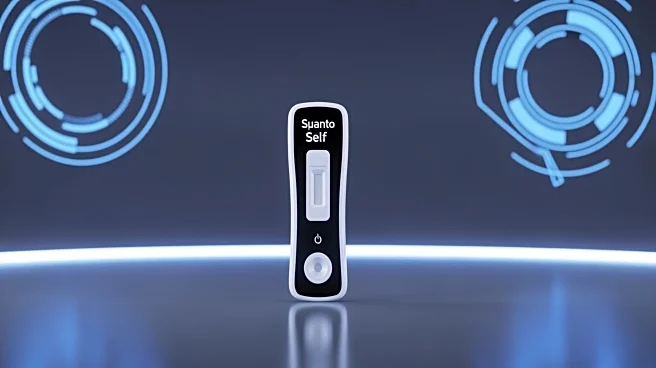What's Happening?
The self-testing market is anticipated to grow significantly, with projections estimating its value to reach USD 42.67 billion by 2032, up from USD 23.49 billion in 2025. This growth is driven by an increasing
demand for self-testing solutions, which are becoming more prevalent due to advancements in technology and a shift towards more personalized healthcare. Key players in the market include Becton Dickinson and Company, Abbott, and ACCESS BIO, among others. The market is segmented by product type, application, and end-user, with significant contributions from regions such as North America, Europe, and Asia Pacific.
Why It's Important?
The expansion of the self-testing market reflects a broader trend towards consumer-driven healthcare, where individuals take more control over their health monitoring. This shift is likely to reduce the burden on healthcare systems by enabling early detection and management of health conditions. Companies in the healthcare and technology sectors stand to benefit from this growth, as they develop and market new self-testing products. However, this trend also raises questions about the accuracy and reliability of self-administered tests, which could impact public health outcomes if not properly regulated.
What's Next?
As the market grows, regulatory bodies may need to establish stricter guidelines to ensure the accuracy and safety of self-testing kits. Companies are expected to continue innovating, focusing on improving the user-friendliness and reliability of their products. Additionally, there may be increased collaboration between tech companies and healthcare providers to integrate self-testing data into broader health management systems.











